
Find Help
More Items From Ergsy search
-
Is aspirin effective in preventing other types of cancer?
Relevance: 100%
-
Has the FDA approved aspirin for cancer prevention?
Relevance: 100%
-
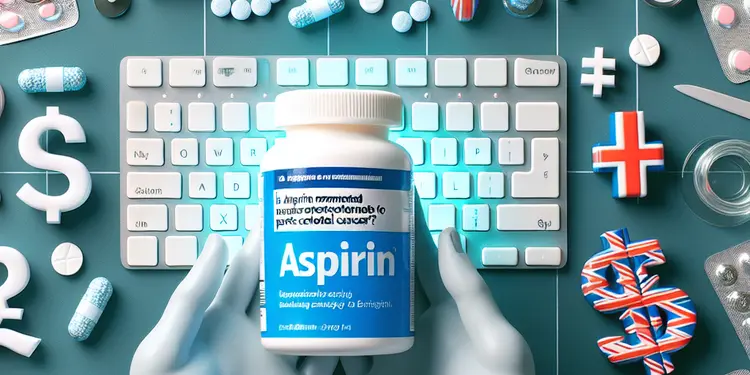
Is aspirin recommended for everyone to prevent colorectal cancer?
Relevance: 100%
-

What should I do if I'm considering aspirin for cancer prevention?
Relevance: 99%
-

What dosage of aspirin is considered effective for cancer prevention?
Relevance: 96%
-

What do health organizations say about aspirin and cancer prevention?
Relevance: 94%
-
How long do studies suggest taking aspirin for cancer prevention?
Relevance: 93%
-
Is aspirin more effective for certain age groups in preventing colorectal cancer?
Relevance: 90%
-

Can aspirin stop colorectal cancer?
Relevance: 87%
-

Has aspirin been proven to cure colorectal cancer?
Relevance: 82%
-

How does aspirin work to reduce cancer risk?
Relevance: 82%
-

Should people with a family history of colorectal cancer take aspirin?
Relevance: 79%
-

Can aspirin prevent colorectal cancer?
Relevance: 77%
-
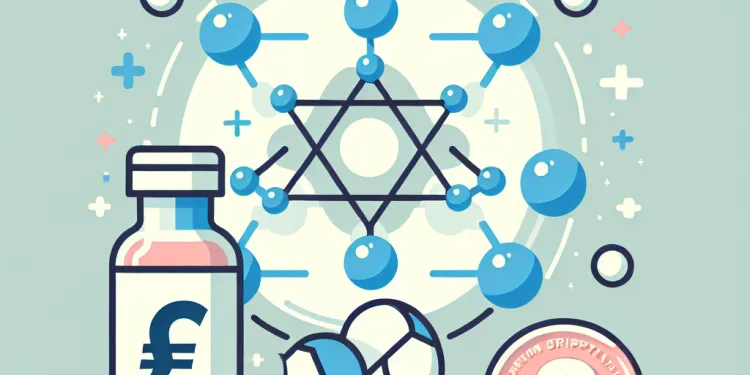
What is Aspirin?
Relevance: 62%
-
Are there ongoing studies about aspirin and colorectal cancer?
Relevance: 59%
-

Are Aspirin and Ibuprofen the same?
Relevance: 58%
-

Is Paracetamol the same as Aspirin?
Relevance: 58%
-

Can bowel cancer be prevented?
Relevance: 58%
-
Can aspirin interact with other medications?
Relevance: 56%
-

Can aspirin help in reducing the risk of strokes?
Relevance: 56%
-
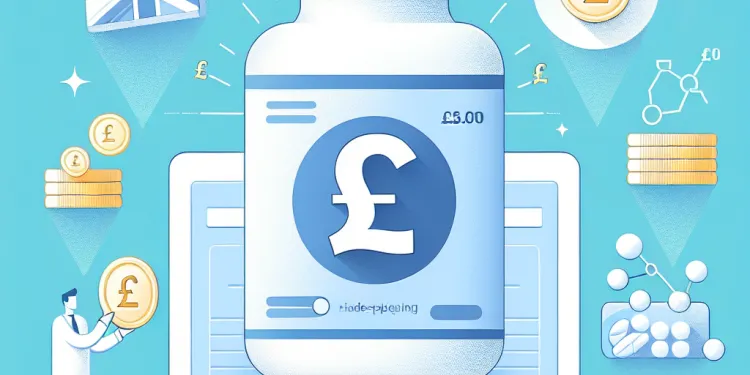
What are the side effects of Aspirin?
Relevance: 55%
-
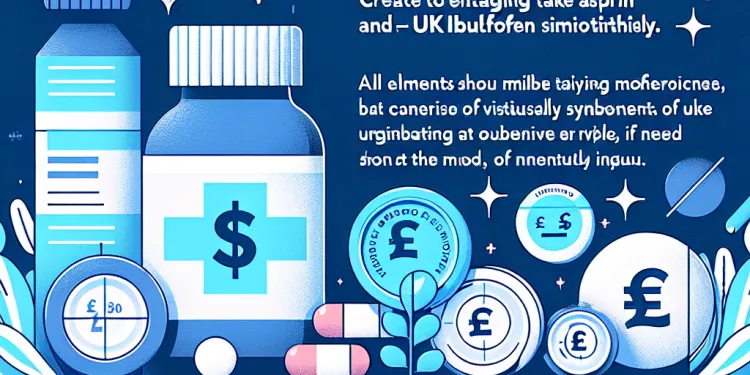
Can I take Aspirin and Ibuprofen together?
Relevance: 52%
-
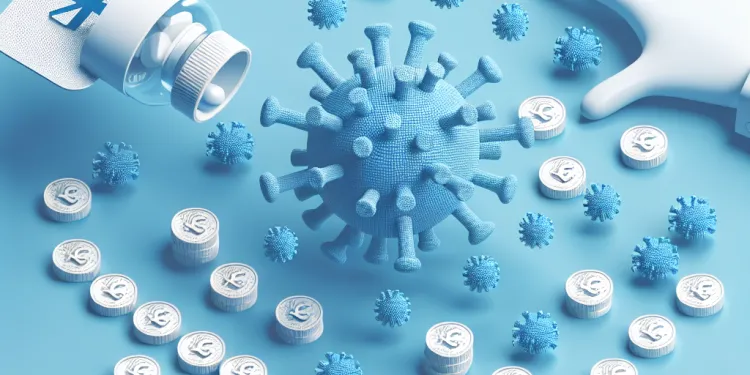
Is it safe to use aspirin to treat chickenpox symptoms?
Relevance: 51%
-

What is the difference between Aspirin, Paracetamol, and Ibuprofen?
Relevance: 50%
-
Should individuals with certain medical conditions avoid aspirin?
Relevance: 50%
-

Which one is better for headaches: Aspirin or Paracetamol?
Relevance: 50%
-

What is the difference between aspirin, paracetamol, and ibuprofen?
Relevance: 50%
-

Can lifestyle changes help prevent testicular cancer?
Relevance: 48%
-
Can lifestyle changes also help prevent colorectal cancer?
Relevance: 47%
-

What is Aspirin?
Relevance: 45%
-

Do over-the-counter medications help in preventing heart attacks and strokes?
Relevance: 45%
-
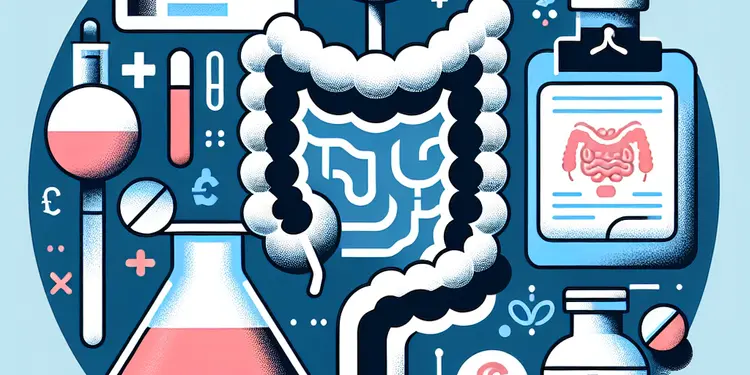
Do all studies agree on aspirin's effectiveness in preventing colorectal cancer?
Relevance: 43%
-

Endometrial Cancer
Relevance: 39%
-

Vaginal Cancer
Relevance: 38%
-
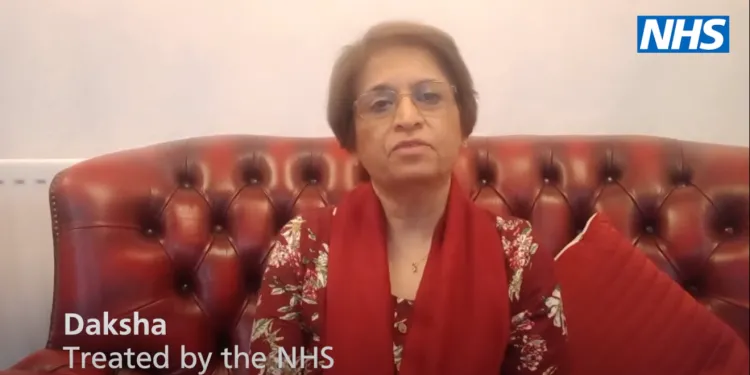
What is Cancer?
Relevance: 38%
-

Endometrial Cancer
Relevance: 38%
-

Are there risks associated with taking aspirin regularly?
Relevance: 38%
-

What is testicular cancer?
Relevance: 38%
-

Endometrial Cancer
Relevance: 38%
-
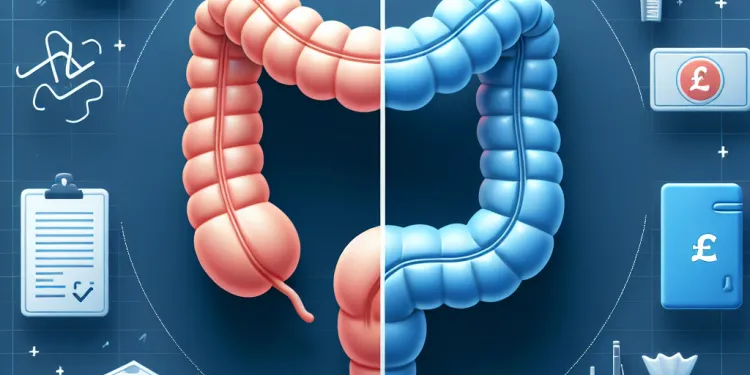
What is the difference between colon cancer and rectal cancer?
Relevance: 37%
Aspirin and Cancer Prevention: An Overview
Aspirin, a common over-the-counter medication, is widely known for its pain-relieving and anti-inflammatory properties. However, its role in cancer prevention has been a subject of research and debate among health organizations. In the UK, the National Health Service (NHS) and organizations like Cancer Research UK have been evaluating the potential of aspirin in reducing cancer risk, especially certain types of cancers.
Research on Aspirin’s Effectiveness
Several studies have investigated the potential of aspirin to reduce the risk of developing cancer. Research has suggested that regular aspirin use might lower the risk of colorectal cancer and perhaps other cancers such as breast and prostate cancer. Aspirin is known to have chemopreventive properties that might inhibit the growth and spread of cancer cells. However, while some studies have shown promise, not all results have been conclusive, and the evidence is still being evaluated.
Health Recommendations in the UK
The NHS advises caution in the use of aspirin as a preventive measure for cancer. While acknowledging some evidence of its benefits, the NHS emphasizes the need for a personalized approach, considering the risks and benefits for each individual. The potential side effects of aspirin, such as gastrointestinal bleeding and increased risk of hemorrhagic stroke, must be weighed carefully. Therefore, the NHS recommends that individuals do not self-medicate for cancer prevention and that any use of aspirin should be discussed with a healthcare provider.
Guidelines and Warnings
Cancer Research UK also highlights that while aspirin has shown some promising results in reducing cancer risk, more studies are needed to fully understand the implications of long-term use. They stress that aspirin should not be taken routinely for cancer prevention outside of a clinical trial setting or medical supervision. Additionally, people with certain medical conditions or those taking specific medications should be particularly cautious about taking aspirin due to possible adverse interactions.
Looking Towards the Future
The ongoing research and clinical trials continue to explore the potential role of aspirin in cancer prevention. Health organizations are keeping a close watch on these developments to update guidelines based on the latest evidence. In the meantime, the focus remains on preventive strategies with proven benefits, such as maintaining a healthy lifestyle, early screening, and regular medical check-ups.
Conclusion
In summary, while aspirin holds potential as a preventive measure against certain types of cancer, health organizations in the UK urge caution, stressing the importance of medical advice before considering its use. Individuals should adhere to regular health screenings and risk assessments to effectively manage their cancer risk.
Aspirin and Cancer Prevention: An Overview
Aspirin is a common medicine you can buy without a doctor's prescription. It helps with pain and swelling. Some people think it might also help stop cancer. In the UK, the National Health Service (NHS) and groups like Cancer Research UK are looking into how aspirin might help lower the chance of getting some types of cancer.
Research on Aspirin’s Effectiveness
Scientists have been studying whether aspirin can help stop cancer. Some studies say taking aspirin regularly might lower the chance of getting bowel cancer and maybe breast and prostate cancer too. Aspirin might help stop cancer cells from growing. But not all studies agree, and scientists are still figuring it out.
Health Recommendations in the UK
The NHS says to be careful with aspirin for preventing cancer. Even though it might help, the NHS wants people to think about how it could help or hurt them personally. Aspirin can cause problems like stomach bleeding and some types of stroke. The NHS says people should talk to a doctor before using aspirin to stop cancer.
Guidelines and Warnings
Cancer Research UK also says aspirin might help with cancer, but more research is needed. They say not to take aspirin for cancer without a doctor's supervision. Some people have health issues or take other medicines that can cause bad reactions with aspirin, so they need to be extra careful.
Looking Towards the Future
Experts are still studying aspirin's role in stopping cancer. They are watching the research closely to update their advice. Right now, they recommend proven ways to stay healthy, like eating well, exercising, getting screened early, and visiting the doctor regularly.
Conclusion
In short, while aspirin might help prevent some types of cancer, UK health experts say to be careful. It's important to talk to a doctor before using aspirin for this reason. People should go for regular health check-ups and screenings to manage their cancer risk.
Frequently Asked Questions
What is the role of aspirin in cancer prevention?
Some studies suggest that aspirin may help reduce the risk of certain types of cancer, particularly colorectal cancer, by inhibiting the growth of cancer cells and promoting apoptosis.
Which cancers might aspirin help prevent?
Aspirin is most commonly associated with a reduced risk of colorectal cancer, but some studies suggest it may also lower risks for esophageal, stomach, breast, and prostate cancers.
How does aspirin work to prevent cancer?
Aspirin is thought to prevent cancer by inhibiting cyclooxygenase enzymes (COX-1 and COX-2), reducing inflammation and the formation of potentially cancer-causing compounds.
Are there any official guidelines regarding aspirin use for cancer prevention?
Some health organizations, like the U.S. Preventive Services Task Force, recommend considering low-dose aspirin for certain populations at increased risk for colorectal cancer, but emphasize the importance of weighing benefits against potential risks.
What are the potential benefits of taking aspirin for cancer prevention?
The potential benefits include a reduced risk of developing certain cancers and lowering the risk of cancer spreading or recurring.
What are the risks of using aspirin for cancer prevention?
Risks include gastrointestinal bleeding, hemorrhagic stroke, and allergic reactions. Long-term use of aspirin should be discussed with a healthcare provider.
Who might be recommended to take aspirin for cancer prevention?
Individuals with a high risk of colorectal cancer or those with a family history of the disease may be considered for aspirin therapy, but it should be personalized based on individual risk factors.
What do health organizations recommend about starting aspirin therapy for cancer prevention?
Recommendations vary, but many health organizations suggest discussing aspirin therapy with a healthcare provider, who can consider the individual's specific risk factors and medical history.
How much aspirin is recommended for cancer prevention?
Low-dose aspirin (typically 75 to 100 mg daily) is often used when recommended for cancer prevention, but dosage should be determined by a healthcare professional.
Can aspirin use reduce cancer mortality?
Some studies indicate that long-term aspirin use may be associated with a lower risk of dying from cancer, but more research is needed to confirm these findings universally.
Is aspirin effective in cancer prevention for everyone?
The effectiveness of aspirin for cancer prevention can vary based on individual health profiles, cancer types, genetics, and other factors.
How long should someone take aspirin for cancer prevention?
Most benefits from aspirin in cancer prevention are observed with long-term use, often over a decade, but any regimen should be under healthcare supervision.
Should people with a family history of cancer take aspirin?
Individuals with a family history of cancer should discuss aspirin use with their healthcare provider, who can assess their specific risk profile and potential benefits.
Is there a specific age group that benefits most from aspirin use for cancer prevention?
Some guidelines suggest that adults in their 50s and 60s who are at high risk for colorectal cancer may benefit most, but decisions should be individualized.
What are the contraindications for using aspirin for cancer prevention?
Contraindications include allergies to aspirin, active gastrointestinal bleeding, and certain blood disorders; a healthcare provider can provide a comprehensive evaluation.
Has the use of aspirin for cancer prevention been approved by major health organizations?
Aspirin use for cancer prevention has not been universally approved; organizations recommend personalized assessments due to varying risk-benefit profiles.
Does aspirin affect all stages of cancer development?
Aspirin is thought to affect early stages by reducing inflammation and cellular changes, but its role in later stages, including metastasis, requires more research.
Can aspirin be used as a stand-alone preventive measure for cancer?
Aspirin should not be used as the sole preventive measure; a comprehensive cancer prevention strategy also includes lifestyle modifications like diet and exercise.
What ongoing research is being conducted on aspirin and cancer prevention?
Ongoing research is exploring optimal dosages, specific cancers affected, genetic factors, and the integration of aspirin therapy with other preventive measures.
How should one decide if they should take aspirin for cancer prevention?
Decisions should be made in consultation with a healthcare provider, considering personal risk factors, family history, potential benefits, and risks.
How can aspirin help stop cancer?
Aspirin might help stop some types of cancer, like colon cancer, from growing. It can make cancer cells die.
Can aspirin stop some cancers?
Aspirin is a medicine that might help lower the risk of getting certain types of cancer. It is most known for helping reduce the risk of a type of cancer called colorectal cancer, which affects the large intestine.
Some studies also say aspirin might help with other cancers like throat (esophageal), stomach, breast, and prostate cancer.
If you have trouble with reading, you can use tools like text-to-speech, which will read the words out loud for you. Also, using a highlighter to mark important words can help you understand better.
How does aspirin help stop cancer?
Aspirin can help stop cancer. It does this by blocking special enzymes called COX-1 and COX-2. This helps lower swelling and stops bad chemicals that might cause cancer.
Is it okay to use aspirin to stop cancer?
Some health groups say some people might take little bits of aspirin to help stop a type of cancer called colorectal cancer. This is only for people more likely to get this cancer. But, it’s important to think about the good and bad things that could happen from taking aspirin.
How might taking aspirin help prevent cancer?
Aspirin might help stop some types of cancer.
- Aspirin can reduce swelling in the body.
- It might help lower the chance of getting some cancers.
- Aspirin is easy to take in small doses.
Talk to a doctor before taking aspirin for cancer prevention.
This can help lower the chance of getting some kinds of cancer. It may also help stop cancer from coming back or spreading.
What can happen if you use aspirin to stop cancer?
Taking aspirin can sometimes cause problems like bleeding in the stomach, a type of stroke that causes bleeding in the brain, and allergies. It's important to talk to a doctor before using aspirin for a long time.
Who should take aspirin to stop cancer?
People who have a high chance of getting bowel cancer, or have family members with the disease, might take aspirin to help. A doctor needs to decide what's best because everyone is different.
What do health experts say about taking aspirin to stop cancer?
Doctors have some ideas about using aspirin to help stop cancer. But it is important to ask a doctor before you start taking aspirin. They can say if it is good for you.
Helpful Tip: You can ask a friend or family member to help read this.
Use a computer or phone to listen to this text aloud if it helps you understand better.
Different experts have different advice about aspirin. Many health groups say you should talk to a doctor about it. The doctor can think about your health history and risks to decide if aspirin is good for you.
How much aspirin should I take to help stop cancer?
Aspirin is a medicine. Some people say it might help stop cancer. But, it is important to ask a doctor how much to take. A doctor can tell you the right amount. Never take medicine without asking a grown-up or a doctor first.
Here are some things that can help you understand:
- Ask someone you trust to help you read.
- Use pictures to help you understand.
- Take your time to read slowly.
If you have questions, ask a doctor, nurse, or someone you trust.
Taking a small amount of aspirin every day, about 75 to 100 mg, can help stop cancer from starting. But, it's important to talk to a doctor to know how much you should take.
Can taking aspirin help people live longer if they have cancer?
Aspirin is a medicine that some people take to help with pain or to keep their heart healthy. Scientists are trying to find out if taking aspirin can help people with cancer live longer.
If you have trouble reading, it might help to read aloud with someone else or use a ruler to help you follow the words. You can also use audiobooks or text-to-speech tools to listen to the information.
Taking aspirin for a long time might help people have less chance of dying from cancer. But, we need more research to be really sure about this.
Can aspirin help stop cancer for everyone?
Aspirin is a medicine. Some people think it might help to stop cancer.
But aspirin is not good for everyone. It can help some people, but not all.
Before taking aspirin, it's important to ask a doctor. They can help decide what is best for you.
Tools like pictures and videos can help you understand more. It's good to have someone explain it with you.
Aspirin can help stop cancer, but it works differently for each person. This depends on how healthy you are, the type of cancer, your family history, and other things.
Talk to your doctor to see if aspirin is right for you. They can help you understand how it might help.
Using simple tools like pictures or charts can help explain how aspirin works. Ask someone you trust to help you understand more about it.
How long should a person take aspirin to help stop cancer?
Aspirin can help prevent cancer if you take it for a long time, like 10 years or more. It is important to talk to your doctor before you start taking it.
Is it safe for people whose families have had cancer to take aspirin?
If your family has had cancer, you might wonder if taking aspirin is a good idea. Aspiring can help some people, but it's not for everyone.
Talk to Your Doctor: Always speak with a doctor first. They can tell you if aspirin is right for you.
Use Helpful Tools: Picture supports can help you understand. Try making a checklist of questions to ask your doctor.
Keep it Simple: Remember, only take medicine if a doctor says it's okay.
If someone in your family has had cancer, talk to your doctor about taking aspirin. Your doctor can help you decide if it is a good idea for you and if it might help.
Who should take aspirin to help stop cancer?
Doctors have some rules for people in their 50s and 60s. If you might get bowel cancer, these rules can help. But remember, each person is different. Your doctor will help you decide what is best for you.
When should you not use aspirin to help stop cancer?
Aspirin can help some people, but it's not good for everyone.
Some people should not take aspirin. These include:
- People who are allergic to aspirin.
- People who bleed easily or have a bleeding disorder.
- People with stomach problems like ulcers.
- People who have had a stroke caused by bleeding in the brain.
- Children or teenagers with fever or who have chickenpox or the flu.
If you are not sure if you should take aspirin, ask a doctor or nurse.
Do not take this medicine if you are allergic to aspirin, if you have bleeding in your stomach, or certain blood problems. Talk to your doctor for more information and help.
Do big health groups say it’s okay to use aspirin to stop cancer?
Aspirin is a type of medicine. It might help prevent cancer for some people. But not everyone should use it for this. Doctors and experts say it’s important to talk to a doctor before using aspirin for cancer prevention, because it can help some people but not others. The benefits and risks can be different for each person.
Does aspirin affect cancer?
Can aspirin help or hurt at any time when cancer is growing in the body?
If you find this question hard to understand, you can ask someone you trust to explain it further. You could also use pictures or drawings to help you think about it.
Aspirin might help in the early stages by making swelling go down and stopping changes in cells. But we need to learn more about how it works in later stages, like when cancer spreads.
Can aspirin stop cancer on its own?
Aspirin is a medicine. Some people think it might help stop cancer.
But we do not know if it can stop cancer by itself.
If you are worried about cancer, talk to your doctor.
Reading tools can help. Try:
- Highlighting important words
- Reading out loud
- Asking someone for help
Aspirin should not be the only way to try and stop cancer; to help prevent cancer, it is also important to eat healthy foods and exercise regularly.
What research is looking at aspirin and stopping cancer?
Scientists are studying if taking aspirin can help stop cancer. They want to find out if aspirin can keep people from getting cancer.
If you find long texts hard to read, try reading with a friend or using an app that reads text out loud. You can also use a colored overlay to help you focus on the words.
Scientists are studying how much aspirin people should take, which types of cancer it may help with, and if our genes play a role. They are also looking at how aspirin can work with other ways to prevent cancer.
How do you know if you should take aspirin to stop cancer?
Talk to your doctor before making decisions. Think about your health, your family’s health, and the good and bad things that could happen.
Useful Links
This website offers general information and is not a substitute for professional advice.
Always seek guidance from qualified professionals.
If you have any medical concerns or need urgent help, contact a healthcare professional or emergency services immediately.
- Ergsy carfully checks the information in the videos we provide here.
- Videos shown by Youtube after a video has completed, have NOT been reviewed by ERGSY.
- To view, click the arrow in centre of video.
- Most of the videos you find here will have subtitles and/or closed captions available.
- You may need to turn these on, and choose your preferred language.
- Go to the video you'd like to watch.
- If closed captions (CC) are available, settings will be visible on the bottom right of the video player.
- To turn on Captions, click settings .
- To turn off Captions, click settings again.
More Items From Ergsy search
-
Is aspirin effective in preventing other types of cancer?
Relevance: 100%
-
Has the FDA approved aspirin for cancer prevention?
Relevance: 100%
-

Is aspirin recommended for everyone to prevent colorectal cancer?
Relevance: 100%
-

What should I do if I'm considering aspirin for cancer prevention?
Relevance: 99%
-

What dosage of aspirin is considered effective for cancer prevention?
Relevance: 96%
-

What do health organizations say about aspirin and cancer prevention?
Relevance: 94%
-
How long do studies suggest taking aspirin for cancer prevention?
Relevance: 93%
-
Is aspirin more effective for certain age groups in preventing colorectal cancer?
Relevance: 90%
-

Can aspirin stop colorectal cancer?
Relevance: 87%
-

Has aspirin been proven to cure colorectal cancer?
Relevance: 82%
-

How does aspirin work to reduce cancer risk?
Relevance: 82%
-

Should people with a family history of colorectal cancer take aspirin?
Relevance: 79%
-

Can aspirin prevent colorectal cancer?
Relevance: 77%
-

What is Aspirin?
Relevance: 62%
-
Are there ongoing studies about aspirin and colorectal cancer?
Relevance: 59%
-

Are Aspirin and Ibuprofen the same?
Relevance: 58%
-

Is Paracetamol the same as Aspirin?
Relevance: 58%
-

Can bowel cancer be prevented?
Relevance: 58%
-
Can aspirin interact with other medications?
Relevance: 56%
-

Can aspirin help in reducing the risk of strokes?
Relevance: 56%
-

What are the side effects of Aspirin?
Relevance: 55%
-

Can I take Aspirin and Ibuprofen together?
Relevance: 52%
-

Is it safe to use aspirin to treat chickenpox symptoms?
Relevance: 51%
-

What is the difference between Aspirin, Paracetamol, and Ibuprofen?
Relevance: 50%
-
Should individuals with certain medical conditions avoid aspirin?
Relevance: 50%
-

Which one is better for headaches: Aspirin or Paracetamol?
Relevance: 50%
-

What is the difference between aspirin, paracetamol, and ibuprofen?
Relevance: 50%
-

Can lifestyle changes help prevent testicular cancer?
Relevance: 48%
-
Can lifestyle changes also help prevent colorectal cancer?
Relevance: 47%
-

What is Aspirin?
Relevance: 45%
-

Do over-the-counter medications help in preventing heart attacks and strokes?
Relevance: 45%
-

Do all studies agree on aspirin's effectiveness in preventing colorectal cancer?
Relevance: 43%
-

Endometrial Cancer
Relevance: 39%
-

Vaginal Cancer
Relevance: 38%
-

What is Cancer?
Relevance: 38%
-

Endometrial Cancer
Relevance: 38%
-

Are there risks associated with taking aspirin regularly?
Relevance: 38%
-

What is testicular cancer?
Relevance: 38%
-

Endometrial Cancer
Relevance: 38%
-

What is the difference between colon cancer and rectal cancer?
Relevance: 37%


